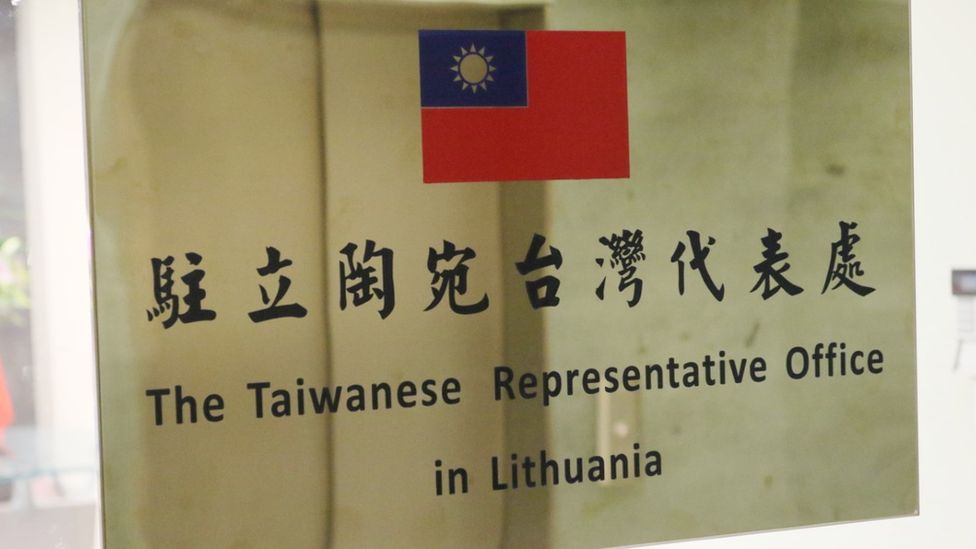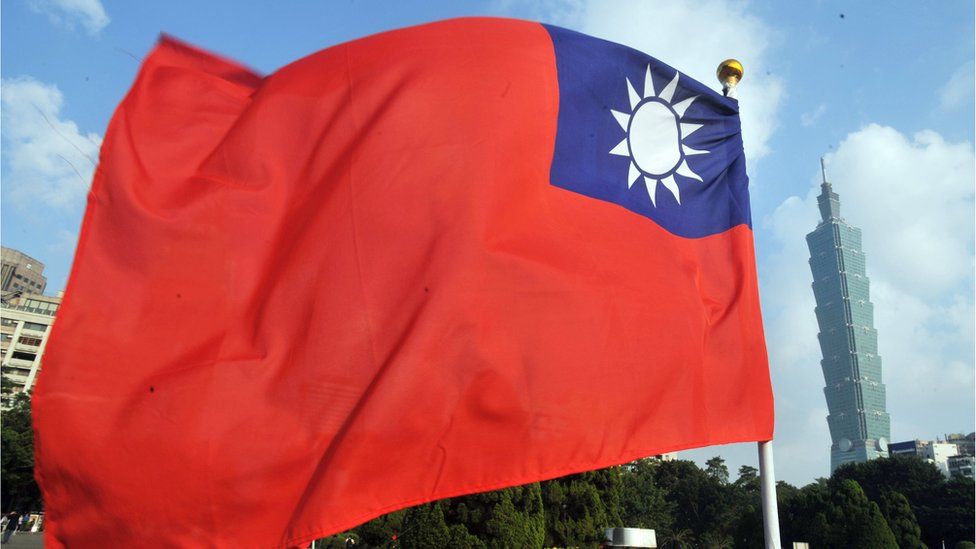China has downgraded its diplomatic relations with Lithuania, days after the Baltic state allowed Taiwan to open a de facto embassy there.
22 November 2021
China has downgraded its diplomatic relations with Lithuania, days after the Baltic state allowed Taiwan to open a de facto embassy there.
Lithuania defended its right to have ties with Taiwan, but said it respected the "One China" policy.
Taiwan's new office in Lithuania does not equate to official diplomatic relations but could be seen as a sign of growing ties between both places.
Beijing considers Taiwan part of China, but Taiwan sees itself as independent.
The new office bears the name Taiwan rather than "Chinese Taipei", the name used by many foreign nations to avoid offending China.
This is the island's first new diplomatic outpost in Europe in 18 years. Taiwan has few allies with whom it has formal ties, due to China's pressure.
The One China policy is the diplomatic acknowledgement of China's position that there is only one Chinese government.
However, it is distinct from the One China principle, whereby China insists Taiwan is an inalienable part of one China to be reunified one day.
China's foreign ministry said the move had "undermined China's sovereignty and territorial integrity" and created a "bad precedent internationally".
It said it would reduce its diplomatic engagement with the country to the level of charge d'affaires, one rung down from an ambassadorship.
Lithuania's prime minister defended her nation's plans for greater engagement with Taiwan - a major supplier of semiconductors, lasers and other high-tech industry.
"Our government's programme says Lithuania wants a more intense economic, cultural and scientific relationship with Taiwan," Ingrida Simonyte said, according to Reuters.
"[But] I want to emphasise that this step does not mean any conflict or disagreement with the 'One China' policy."
The US has also offered its support to Lithuania to withstand Beijing.
Lithuania's move could be seen as the latest sign of some central European nations seeking greater relations with Taiwan even amid pressure from Beijing.
Last month, China spoke out after a delegation of Taiwanese officials were granted visits to Slovakia, the Czech Republic and Lithuania.
Taiwan currently has only has formal diplomatic recognition from 15 nations - most of which are Pacific or Latin American nations.
While governments like the US and Japan have fostered extensive commercial ties with Taiwan, they uphold official diplomatic ties with China and recognise its One China policy.











